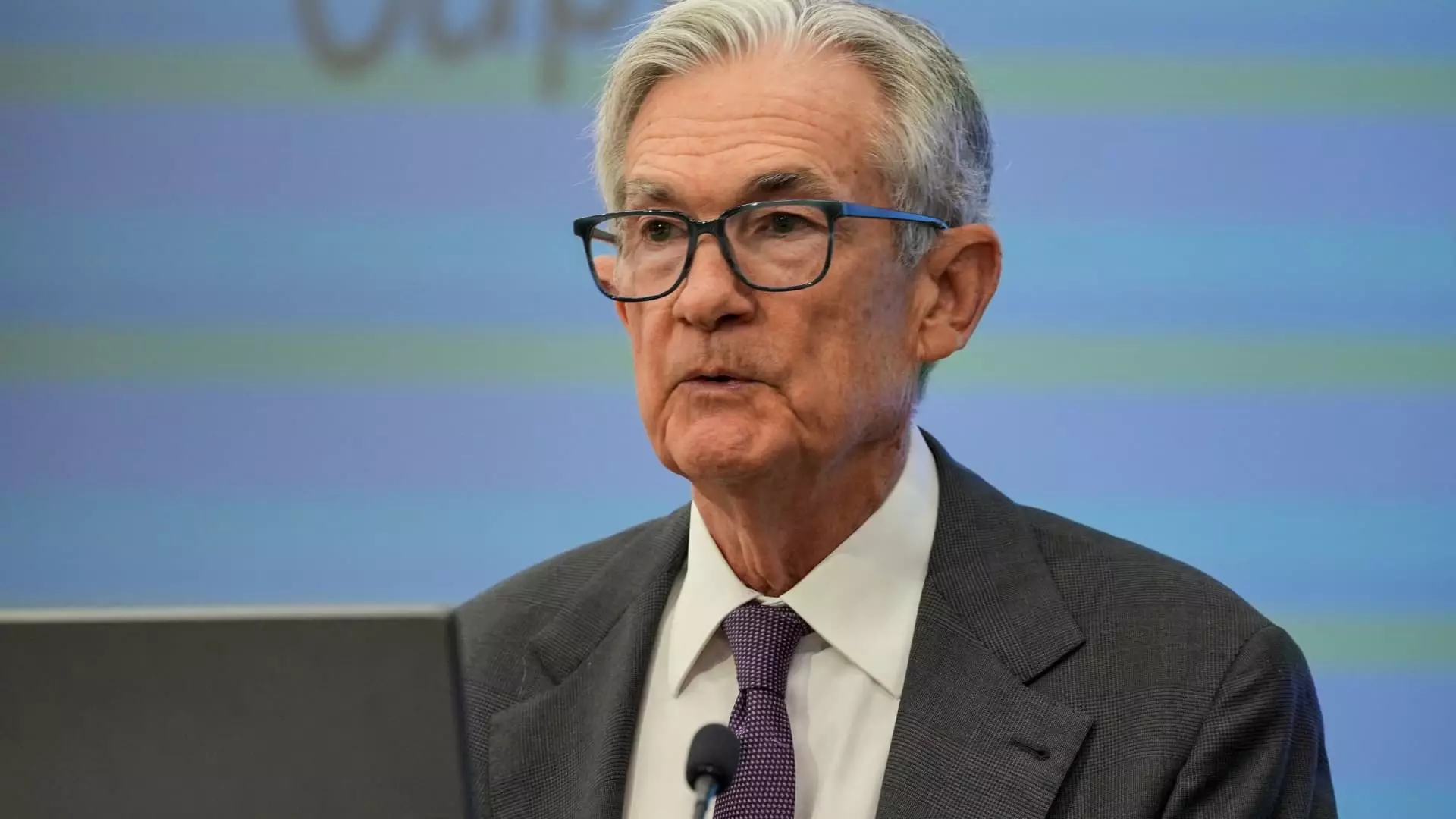In an era where political influence threatens the very independence of central banking institutions, Jerome Powell stands at a crossroads. His upcoming speech, likely his final at Jackson Hole, embodies a critical junction: uphold the revered autonomy of the Federal Reserve or capitulate to unprecedented political pressure. The current political landscape is fraught, with President Trump’s relentless criticism serving as a storm that tests the resilience of the Fed’s independence. While Powell’s calm veneer suggests composure, beneath this surface lies an urgent need to defend the core principles that insulate the Fed from partisan whims.
The Trump administration’s barrage of critiques, especially regarding interest rates and even internal staff conduct, underscores an alarming erosion of institutional boundaries. The attempt to sway monetary policy through public pressure is not only unprecedented but dangerous. Powell’s tenure has been characterized by a quiet but steadfast effort to walk the tightrope of independence, often choosing silence over escalation. However, this stance may now be on the brink of being challenged more overtly. His speech could serve as a subtle yet powerful reminder that monetary policy decisions must remain anchored in data, not political convenience. The Fed’s independence is not a relic of tradition but a pillar vital to economic stability, and Powell’s resolve to defend it will be tested more fiercely than ever.
Market Sentiment and Policy Directions: The Uncertain Path Forward
Financial markets are poised anxiously ahead of Powell’s remarks, interpreting his words as potential signals regarding future interest rate movements. The prevailing expectation is that Powell might outline a cautious attitude rather than a definitive promise for a September rate cut. This ambiguity, while creating short-term unpredictability, aligns with a prudent approach aimed at balancing inflation concerns with economic growth. The Fed’s “data dependency” mantra continues to be its most compelling stance, especially amid conflicting signals from labor markets and inflation trends.
Historically, Jackson Hole speeches under Powell’s leadership have been catalysts for significant policy shifts. From aggressive rate cuts in 2018 to the nuanced pivot on inflation in 2020, his words have wielded substantial influence on market psychology. This time, the challenge is nuanced: how to communicate a leaning toward easing without appearing overzealous. Major players like Goldman Sachs suggest Powell might hint at a September cut, but he’s unlikely to explicitly commit. The risk here is twofold — overpromising could lead to market disappointment, while excessive caution might be read as indecision, feeding volatility.
Furthermore, the broader economic context complicates his message. The labor market, often viewed as a barometer for economic health, presents mixed signals. Recent job growth figures are weak but labeled “solid” by policymakers, reflecting a tension between headline numbers and underlying health. The inflation outlook is equally complex, especially considering the impact of tariffs and supply chain disruptions under Trump’s administration. Powell’s challenge lies in articulating how these factors influence policy—balancing acknowledgment of recent headwinds with the imperative of not letting inflation spiral out of control.
The Long-Term Vision: Resetting the Federal Reserve’s Framework
Beyond immediate policy considerations, Powell’s speech is expected to revisit the Fed’s long-term inflation targeting strategy. The adoption of “flexible average inflation targeting” in 2020 was meant to give the Fed greater flexibility, especially during unprecedented times like a pandemic. Yet, its implementation coincided with inflation rising to levels not seen in four decades—a clear sign that the framework, while well-intentioned, might require recalibration.
The mood within the Fed seems to be shifting back toward preemptive measures, emphasizing the importance of a more traditional approach to inflation control. Powell’s remarks might signal a retreat from the 2020 modifications, restoring a stance that aggressively counters rising prices before they become entrenched. This movement reflects a recognition that the tools designed for a different economic era may no longer be adequate, particularly in a post-pandemic world where inflationary pressures have proven more persistent.
Critics argue that the recent inflation surge was exacerbated by the Fed’s own policies and the tumultuous political environment. Returning to a more conventional stance is not merely policy housekeeping; it is a statement about the Fed’s commitment to its primary mandate—price stability—without succumbing to politicized narratives that attempt to score short-term political points. Powell’s willingness to revisit and possibly rescind the 2020 inflation framework indicates a principled stance, emphasizing responsible governance over political expediency.
Challenging the Status Quo: A Defender of Central Bank Credibility
Powell stands not only as a policymaker but as a protector of the integrity of the Federal Reserve. His leadership, viewed through a liberal centrist lens, underscores the importance of a resilient and independent institution that operates in the public interest rather than political favor. In the face of relentless attacks, the true test of his leadership is whether he can articulate a compelling justification for maintaining this independence.
In some ways, the upcoming speech becomes a battle for credibility—both for Powell personally and for the institution he leads. The Fed’s credibility hinges on its perceived impartiality, especially now, when populist narratives threaten to undermine the very data-driven approach that has underpinned its success. Powell’s measured tone, his willingness to challenge political narratives subtly, and his readiness to clarify the Fed’s long-term goals are crucial acts of resistance against encroaching politicization.
As the political environment grows increasingly fractious, Powell’s stance becomes a beacon for the preservation of institutional independence. His ability to speak candidly about the risks of political interference, without alienating policymakers or markets, will determine whether the Federal Reserve can sustain its reputation as a scientifically guided, nonpartisan entity committed to economic stability and fairness.
Powell’s Jackson Hole speech is poised to be a pivotal moment—challenging the illusion of unshakable independence and reinforcing the necessity of a principled, data-driven monetary policy framework. It’s a test of leadership, resilience, and conviction amid one of the most turbulent periods in recent financial history.

